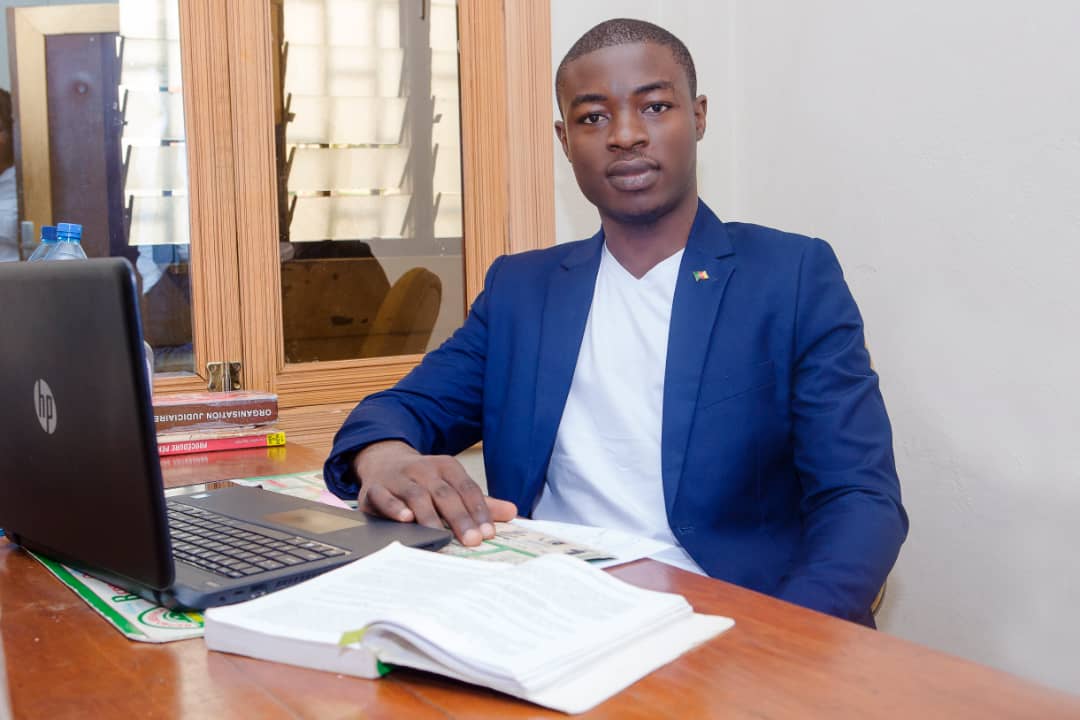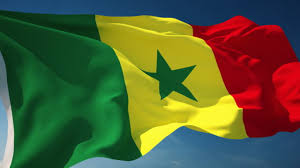Date: July 2, 2015 (Washington, DC)
The interview is prepared and published in English
Professor Morad Eghbal, one of the founding fathers of the very competitive Legal Mster (LLM) grants an interview to Ghislain Kuitchoua, the director of tribunejustice in which he uncovers the body and the spirit of the LLM LOTUS.
ME: Strictly speaking, the decision to create such a program was a shared and joint decision which began with the then-Dean of the School of Law, Dean Gil Holmes, and the Director of the Center for International and Comparative Law, Prof. Dr. Mortimer Sellers, and me seeing merit in exploring the establishment of such a program; a decision which was then supported by the law faculty, in the end, and the institution, as a whole. I was privileged to chair the ad hoc faculty committee which designed the program and then I served for six years as the LLM-LOTUS degree program’s inaugural director. The decision to have such a program was anchored in two major realizations: (A) Maryland, generally, and Baltimore, in particular, the state’s largest city have been historically a hub of commercial activity in close proximity to the nation’s capital and provided all the benefits associated with its geographic location. Baltimore is a historic port town with a major port facility on the East Coast of the United States. The State, at that time, did not have an academic graduate legal program aimed at facilitating and assuring a regularized transition for legal practitioners from abroad who sought dual- and multiple-jurisdictional practice opportunities, and (B) there was a distinct and viable, prospective and well-qualified clientele, residing both here in the United States and also abroad from which to draw potential applicants for this premier program. 2 – What is precisely the LOTUS program? [Qu’est précisément le programme LOTUS?]
ME: To begin, a few preliminary observations are in order about the name of this premier graduate law degree program in Maryland. Of course, LOTUS is an acronym for the “Law of the United States” which reflects accurately the aim, mission and focus of the program which is to say, it teaches the law of the United States (mind you, not the “laws,” but the “law”) as the program’s current web site reflects (http://www.law.ubalt.edu/academics/post_jd_graduate_programs/llmlotus/, as at July 2, 2015). But there is also a symbolic aspect to the program’s name which derives from the lotus flower and often is not mentioned, might not be known, or is perhaps overlooked, at times. (http://www.lotusflowermeaning.net/, as at July 2, 2015) Anybody who has ever observed a lotus flower emerging from a murky pond cannot fail to see the beauty of this exquisite plant. The flower always looks so clean and pure against the background of the dirty pond. Because of this the lotus flower has come to be associated with purity and beauty in Buddhism and Hinduism respectively; among the ancient Egyptians, scholars observed that in the night-time the lotus closed its flowers and sank into the water, and came up with a different association with the flower related to rebirth and the Sun; in actual fact the Lotus slowly emerges from a pond over a three day period and then blooms in the morning until mid-afternoon. Thus, the symbolic meaning of this flower is transplanted to this program to signify both the fact that in its purest form the study of law can and does bring people together for a common purpose, instead of keeping them apart and separate from one another, is a source of harmony and peaceful interactions, and the presence of foreign practitioners will help contribute to the advancement of U.S. law, also. As can be expected, the program’s structure may have somewhat changed over the more than a decade the program has now been in operation, but its mission to train highly competent, skilled lawyers and to enhance legal education transnationally and nationally has not changed. The many successful and productive graduates of this innovative program are ample testimony to the program’s vision, value and ability to deliver. ME: The LLM LOTUS degree is mainly focused on three potential and prospective graduate law students. One, individual practitioners who might wish to learn foundational aspects of the law of the United States with an eye toward enhancing their practice abroad, or else who might desire to qualify also for admission to the practice of law in the United States and upon successful completion of the bar (licensing) examination and other related requirements. Two, members of the judiciary who might need additional academic qualifications in their career advancement, be it from district court to circuit court levels, or from circuit court to court of appeal levels, or from court of appeal to supreme judicial tribunal (court) levels. ME: Yes, I would decidedly describe the LLM LOTUS degree as a competitive program, both inasmuch as there are rigorous admissions criteria which an applicant is expected to meet who wish to be engaged in this intensive graduate legal study, and also competitive each year within the program’s individual cohorts, as participants hail from many different countries and jurisdictions. I share an observation from my days as the inaugural director of the LLM LOTUS when we had a participant who had been a retired and distinguished dean of a law faculty overseas and in enrolling in the LLM LOTUS degree program decided to undertake an insightful thesis on a certain aspect of comparative law, comparing one principle of legal practice well familiar to the individual in the person’s domestic jurisdiction with the principle of precedent in common law jurisdictions, especially in the United States. Another graduate not only completed the LLM LOTUS degree, then qualified to practice law in New York, but then returned to the University of Baltimore to complete a Juris Doctor and gain admission to the practice of law in Maryland, and long before the State of Maryland had changed her practice admission rules to allow LLM LOTUS graduates to qualify to practice. The LLM LOTUS degree program has also benefited in the past from the participation and enrollment of foreign judicial officers and judges. ME: Perhaps the question should say, “What is the success of this program.” I see the success on two levels, in essence. One – and perhaps most importantly – there are so many graduates of this program who have had a successful and enjoyable law practice in their own country and home jurisdiction and having relocated to the United States all that accumulated wealth of experience, contacts, skills and knowledge would have been otherwise lost to the legal profession in the U.S., if no avenue had been developed for the individuals to participate professionally as attorneys in their new and chosen community. Many practitioners also return to their home jurisdiction and resume their practice there with a good and solid foundation in the law of the United States which also tends to benefit the United States, generally, and practitioners here, in particular. Two, at the time the program began its operation, the State of Maryland’s practice rules did not allow for otherwise qualified bar applicants to take the licensing exam, unless the applicant had earned a Juris Doctor degree from an ABA-accredited law school. At that time, only California, New York and the District of Columbia allowed such admissions to the practice of law. Thus, some individuals would go to these jurisdictions, be admitted there, then meander in the legal profession for more than five years, before their legal practice would allow them to take the attorney’s bar exam, and this entire arrangement would devolve to the detriment of all. Since those days, these licensing rules have been changed in Maryland, also, and the rules of the State’s Court of Appeals (the highest court in the state) allow LLM LOTUS graduates to take the licensing exam. The degree’s web site will list which jurisdictions in the United States currently allow for such arrangements. In the aggregate, the legal profession in this state and nationally, generally speaking, and the legal practice, in particular, as well as the public at-large tend to benefit from the presence of such highly qualified, skilled multi-jurisdiction based law professionals. 6- Are LLM LOTUS candidates eligible to take an American Bar Examination? [Est ce que les candidats au LLM LOTUS peuvent se présenter à l’examen du barreau américain?]
ME: As the program’s web site reflects, LLM LOTUS degree graduates are eligible to take a licensing (bar) exam now in the jurisdictions mentioned on the web site. ME: Yes, I do. The LLM LOTUS degree program is not only a very worthwhile endeavour for those individuals who have the stamina and perseverance to undertake it and who wish to improve themselves by gaining additional qualifications and experience, but this rigorous graduate law degree program prepares its graduates well to gain a better understanding of the scope of their own legal practice and professional development choices. Lawyers (and prospective applicants) from Cameroon would benefit in at least two ways from earning such a degree. In light of Cameroon’s bilingual experience and legal culture (part French influenced and the other English influenced) knowing more about the U.S. experience (e.g., dual jurisdiction of Federal and state courts and separation of powers and state authority) could be helpful to the nation in the further and effective development of the Rule of Law. Secondly, in light of the recent re-authorization of AGOA in the United States Congress (Africa Growth and Opportunity Act) (http://trade.gov/agoa/, as at July 2, 2015) having a significant number of U.S.-trained, qualified law professionals can only prove helpful to the legal development of mutually beneficial and viable relationships between the United States and Cameroon and to the benefit of many. 1 – Why did you decide to create a LLM in the Law Of The United States (LOTUS) program? [Pourquoi avoir décidé de créer un LLM intitulé Law Of The United States?]
3- To whom is mainly intended the LLM LOTUS? [A qui est principalement destiné le LLM lotus?]
Three, members of the law faculty of a foreign university who might wish to obtain graduate legal education and a graduate law degree in their effort either to be advanced to tenure, or else to become full professor. 4- Is LLM LOTUS a competitive program? [le LLM LOTUS est-il un programme compétitif ?]
5- What was the success of this program? [Quels ont été les succes de ce programme?]
7- Do you have any advice to Cameroonian lawyers willing to join the LLM LOTUS? [Avez des conseils pour les juristes camerounais qui veulent intégrer le LLM LOTUS?]








